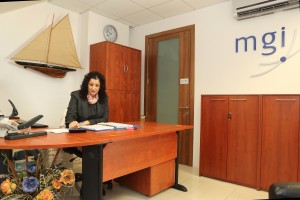Credit Institutions (Licensed and regulated under the Banking Act of 1994)
Introduction
The Banking Act 1994 -Chapter 371 – (the Act) has modernised the banking legislation for Malta. It has replaced the Banking Act 1970 and brought the local operators in line with international practice. It came into force on 15 November 1994 through Legal Notice 155 of 1994. The Act is modeled on a number of relevant European Union Directives in as far as these are applicable to the local banking scenario.
In drafting the 1994 Act, which formed part of the 1994 Financial Legislative Package unanimously approved by Parliament, attention was strongly given to the fact that the Act had to be of a standard that would allow international banking institutions to establish business in Malta and provide an enhanced business environment for domestic credit institutions. The Act has since evolved into a highly respected framework that today supports a stable yet versatile banking industry.
Hence the Act provides the statutory basis for regulating banks or credit institutions constituted in or operating in or from Malta. Article 5 of the Act provides that no business of banking shall be transacted in or from Malta except by a company which is in possession of a licence granted under this Act by the MFSA in its role of Competent Authority. It further provides that a credit institution licensed or holding an equivalent authorisation outside Malta may not open a branch, agency or office or set up any subsidiary in Malta unless it is in possession of a licence granted under this Act by the Competent Authority. Notwithstanding the above, a credit institution licensed or holding an equivalent authorisation in an EU or EEA state shall be entitled to exercise their rights under European Community Law.
Definition of “business of banking”
Article 2 (1) of the Act defines the ‘business of banking’ as:
“… the business of a person who as set out in subarticle (2) accepts deposits of money from the public withdrawable or repayable on demand or after a fixed period or after notice or who borrows or raises money from the public (including the borrowing or raising of money by the issue of debentures or debenture stock or other instruments creating or acknowledging indebtedness), in either case for the purpose of employing such money in whole or in part by lending to others or otherwise investing for the account and at the risk of the person accepting such money”
Credit Institutions are to be considered pivotal in the allocation process between the ultimate lenders and borrowers of funds. Consequently the receipt of deposits or other repayable funds is indissolubly linked with either the granting of credit facilities or the investing for the account and at the risk of the person accepting such funds. An undertaking which restricts its business exclusively to one of the two activities is not therefore covered by the definition and such one-sided undertaking does not necessarily fall within the scope of the Act.
An institution which, pursuant to its Memorandum and Articles of Association, has the formal possibility to engage in banking activities mentioned in the definition in the paragraph above falls within the scope of the Act. The possibility to do any of the activities suffices for licence application purposes. It is immaterial whether or not such an institution actually conducts only one or even more of the respective activities. On the other hand, the mere fact that a person or company pursues the business of banking, whether or not that person is authorised to engage in these activities pursuant to its Memorandum and Articles of Association, is not material That fact, on its own, makes that person or company a credit institution which should be properly licensed
The business activities of a Credit Institution licensed under the Act may, besides the business of banking as defined above, include any or all of these additional activities:
1 Financial leasing;
2. Payment Services as defined in the Financial Institutions Act;
3. Issuing and administering means of payment (travellers’ cheques, bankers’ drafts and similar instruments in so far as this activity is not covered by activity 2 above);
4. Guarantees and commitments;
5. Trading for own account or for account of customers in:
a. money market instruments (cheques, bills, certificates of deposit, and similar
instruments);
b. foreign exchange;
c. financial futures and options;
d. exchange and interest-rate instruments;
e. transferable securities.
6. Participation in securities issues and the provision of services related to such issues;
7. Advice to undertakings on capital structure, industrial strategy and related questions and advice as well as services relating to mergers and the purchase of undertakings;
8. Money broking;
9. Portfolio management and advice;
10. Safekeeping and administration of securities;
11. Credit reference services;
12. Safe custody services.
13 Issuing electronic money
A prospective applicant for a licence as a Credit Institution shall have own funds of not less than the value of €5,000,000. The business of a Credit Institution should be directed in Malta by at least two individuals. Furthermore, all qualifying shareholders, controllers and all persons who will effectively direct the business of the Credit Institution should be fit and proper such that they are suitable persons to ensure the prudent management of the institution.
Credit institutions licensed to carry out the business of banking in or from Malta are bound to follow European legislation/directives in financial services, as issued from time to time by the Commission. Such legislation has been formulated and periodically amended within the context of strengthening financial regulation in the wake of the recent financial crisis.
In terms of Article 4 (2) of ‘the Act the competent authority as appointed under Article 3(1) of the Act may make Banking Rules as may be required for carrying into effect any of the provisions of the Act. The authority may amend or revoke such Banking Rules. Presently there are 14 (fourteen) banking rules which banks in Malta are bound to follow at licensing stage as well as on an ongoing basis. Copies may be obtain from the Authority’s web site.
Malta – the leading Financial Centre in the Mediterranean.
Notwithstanding that Malta is the smallest of the European Union’s member states; it is emerging as one of the fastest growing financial services centres in Europe. Malta is an English speaking country, with English being a joint official language with Maltese. It is universally spoken and written and is the language utilized for local education and business.
The geographical location of the island is advantageously positioned, lying at a strategic crossroad between Europe and Africa. Malta has a long-established and strong democratic tradition and its European Union membership is a guarantee that the rule of law is always respected.
Its economic and fiscal performance in the last three years was at the top end of the EU league..
The country has a strong and flexible single regulatory body for financial services, namely the Malta Financial Services Authority (MFSA) which is very accessable and responsive to clients’ specific requirements. The MFSA is responsible for all licensed financial services activity on the Islands.
Companies registered in Malta benefit from a tax efficient environment, a full imputation system and double taxation treaties with over 50 countries.
Malta is a highly developed financial centre where financial services and financial intermediation and related sectors currently account for around 12 per cent of GDP. The national projections see this figure doubling in the next decade.. All domestic and foreign transactions are handled efficiently and reliably by Maltese and foreign banks utilising the latest technology.
Malta offers excellent possibilities for relocating financial services operations with a cost of living being less than half the EU average, a safe and pleasant working environment and where new business initiatives are welcome and encouraged.











